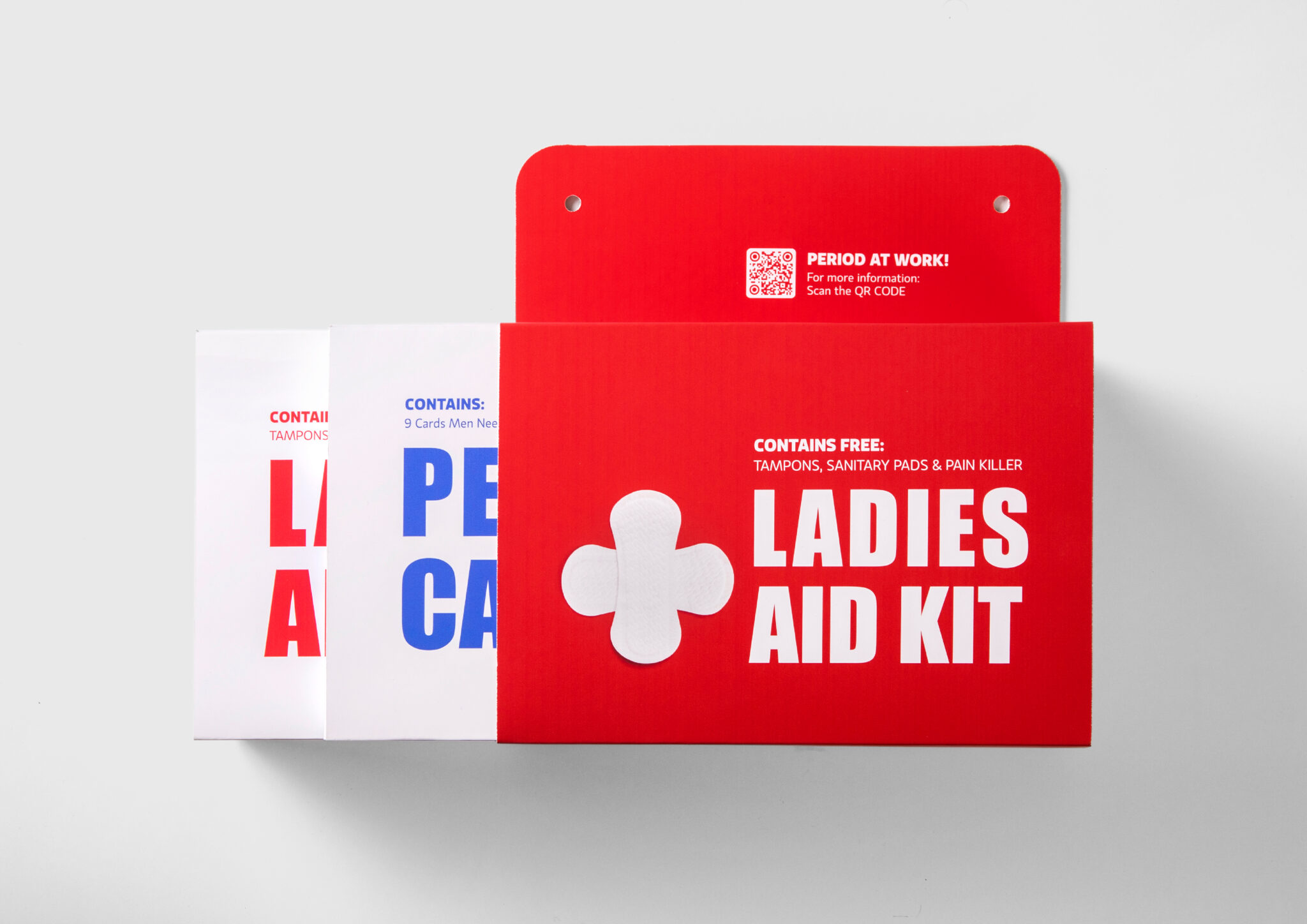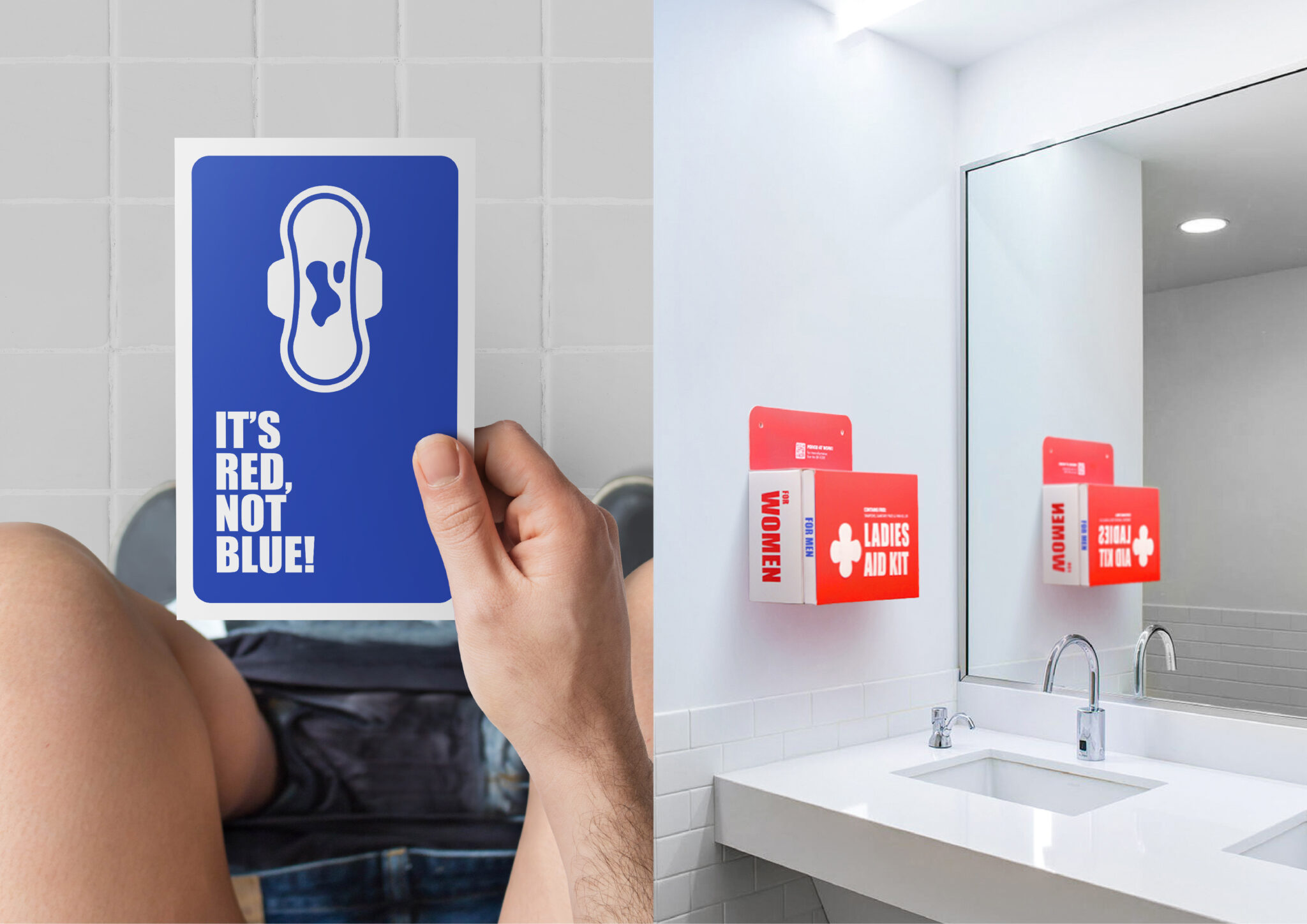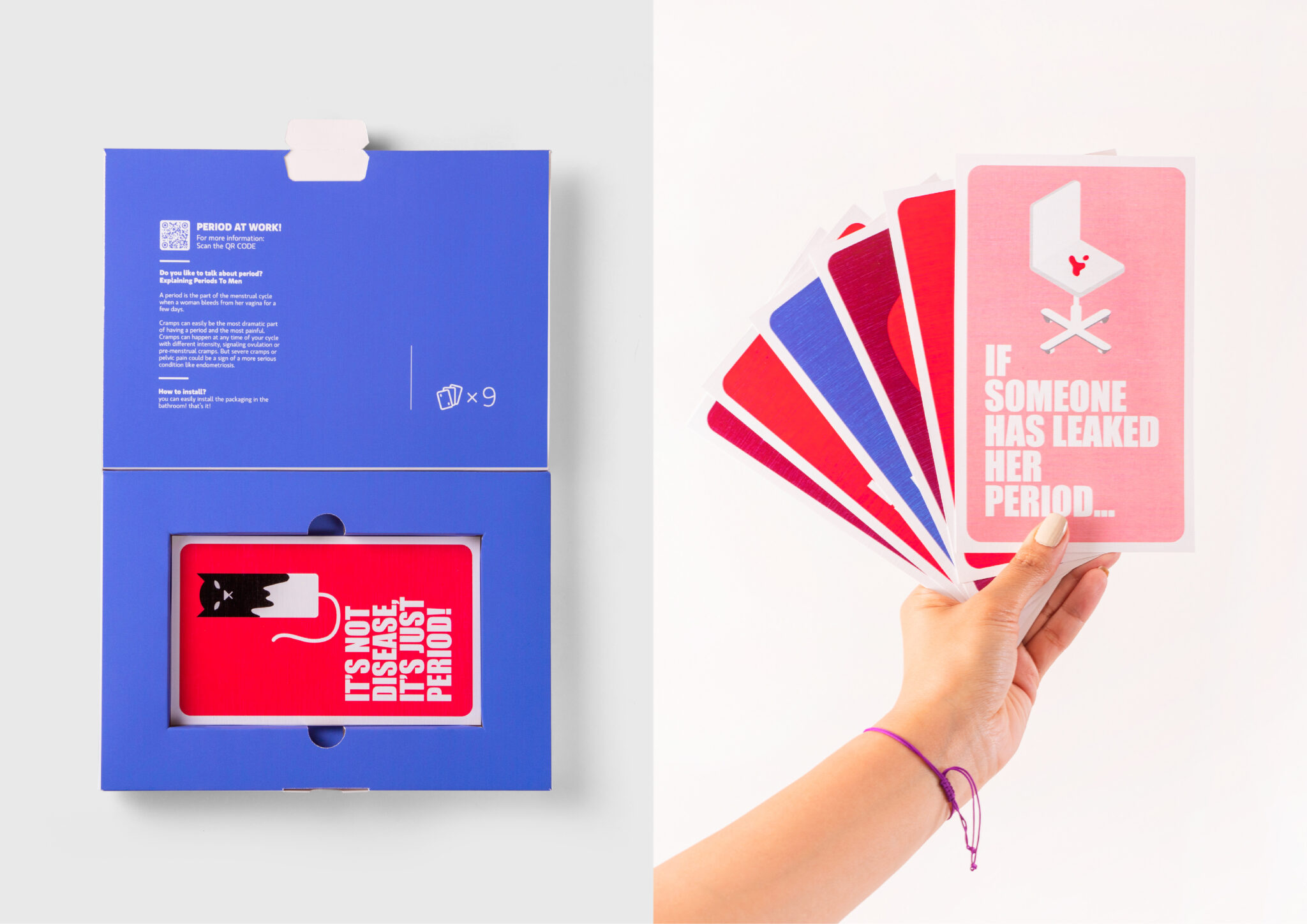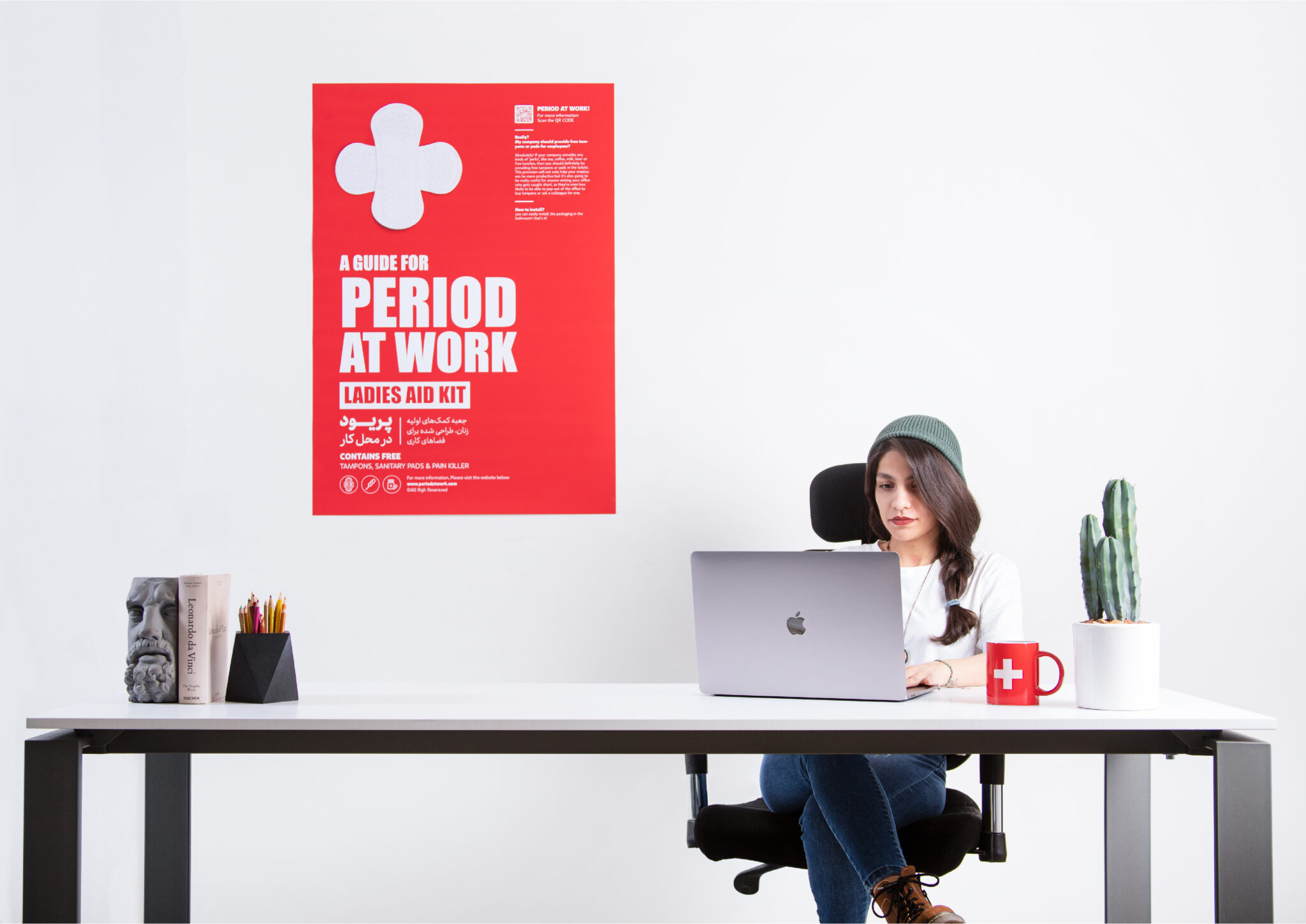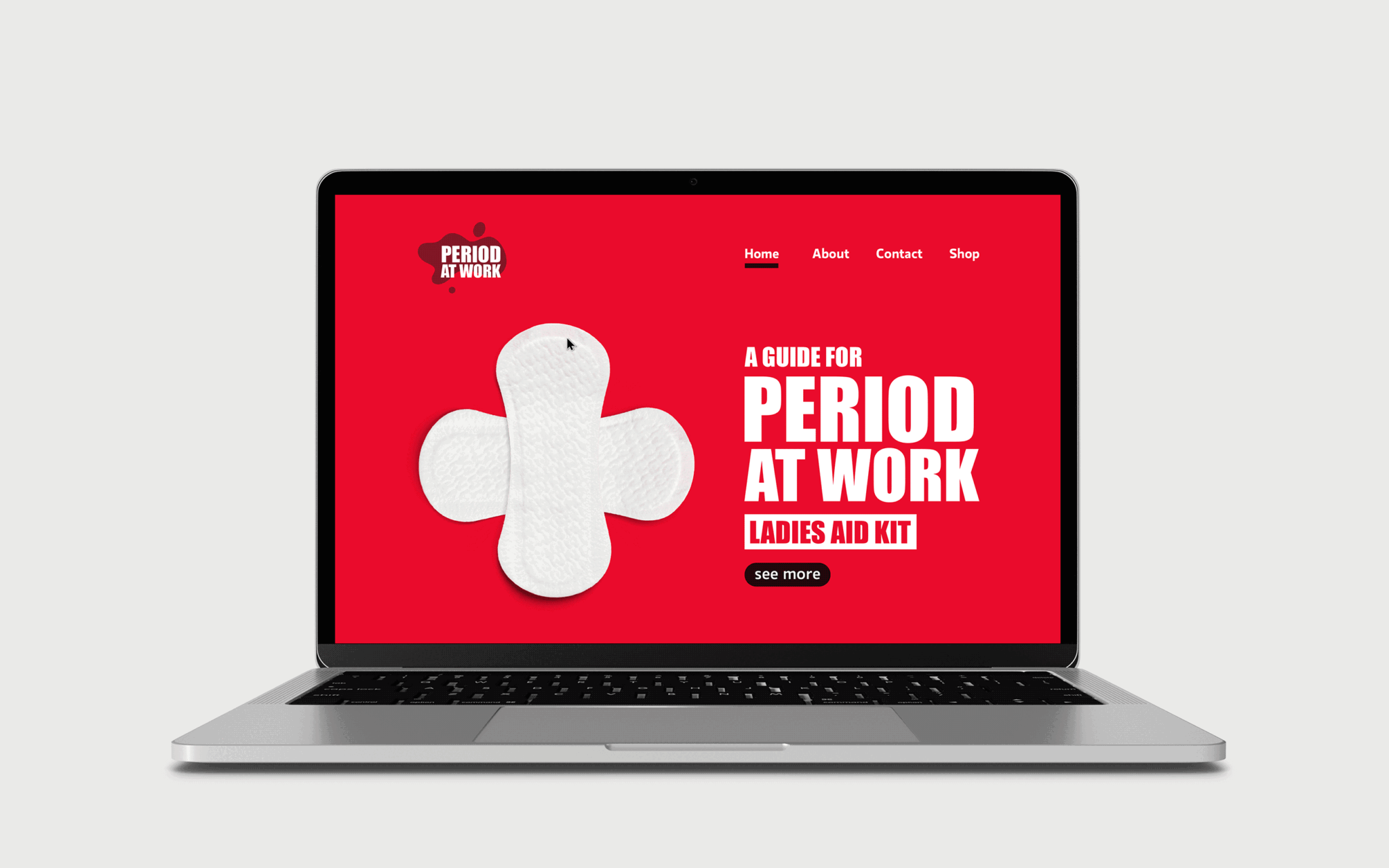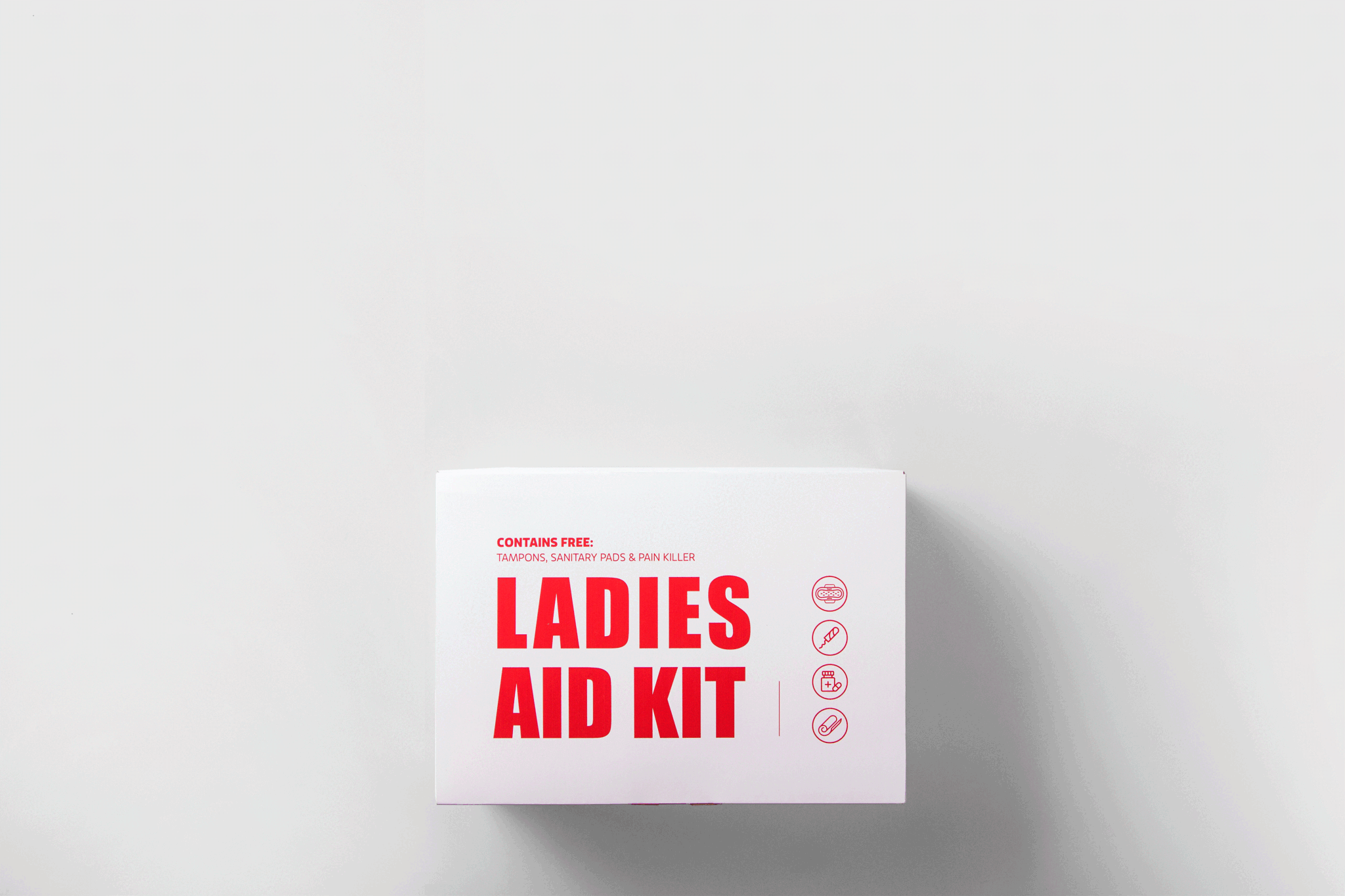Period at work
Interactive, Practical Graphic design, Branding & Packaging
• I am the Concept Creator, Illustrator, Packaging Designer, Researcher, and Creative Director of this project. Commissioned by Deeez.co
Menstruation and pre-menstrual syndrome (PMS) are among the oldest taboos in the world, but especially in Iran, where it is rooted in the culture, religion, and political structures of the government. Despite recent advances in access to information and gender equality, talking about periods, the most natural cycle of change in a woman’s body, is still taboo, and there isn’t an adequate space to talk about it.
The greatest harm of this lack of knowledge on the issue of menstruation occurs in the workplace. 68% of women experience great physical pain during their periods, which leads to a decrease in their effectiveness at work. An environment that does not accept their monthly physical and mental changes expects them to work as effectively as ever.
Many women have menstrual concerns at work. Feeling ashamed or embarrassed about the onset of their period, leaving bloodstains on their clothes or chairs, being ridiculed by male colleagues, hiding sanitary pads, not having pads at work for emergencies and unexpected periods, changing pads late because of a lack of pads, or a feeling of shame due to using the bathroom frequently are just a few issues that not only affect their mental health but can also damage their menstrual cycle.
https://www.youtube.com/watch?v=xpGUV8H3V1I
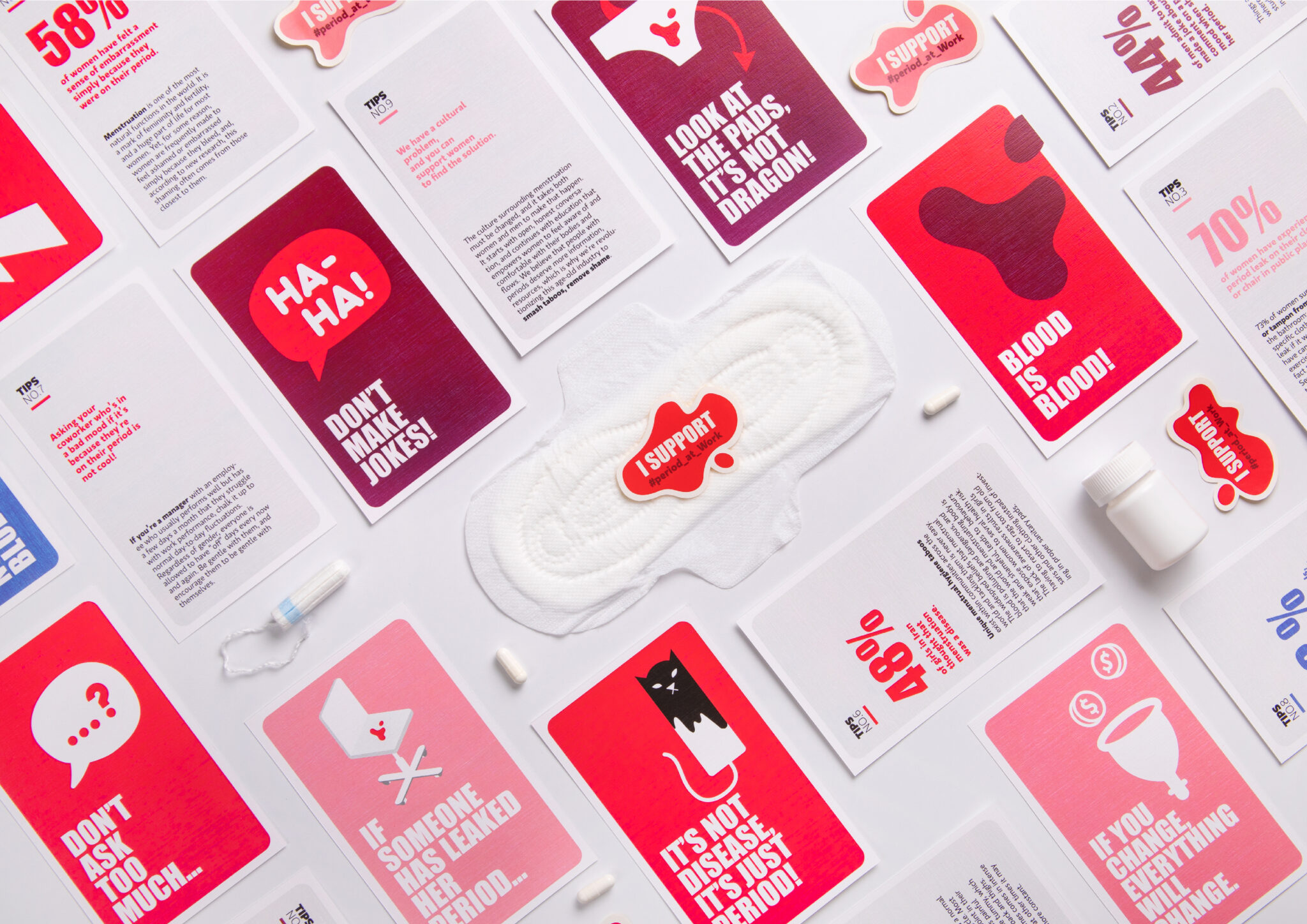
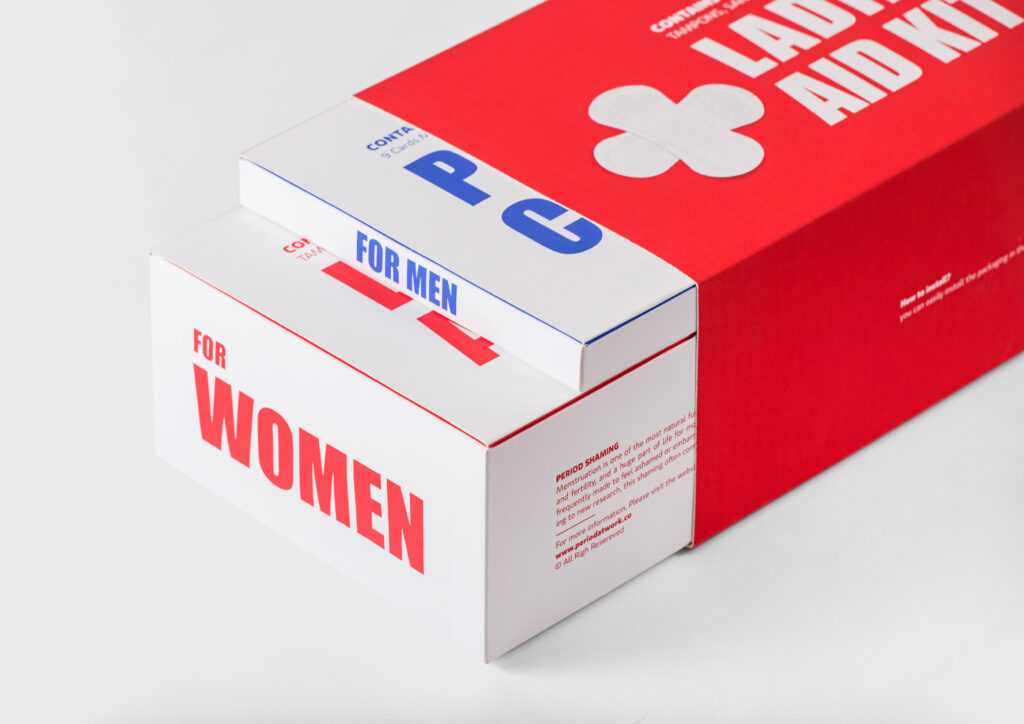
Our solution to normalize the taboo of menstruation in the workplace is to design a women’s first aid kid that is installed in the restrooms of offices and organization.These boxes contain everything a woman needs during her period including sanitary pads, tampons, painkillers, etc. These boxes are not only designed for the use of female employees, but they also have a part to educate men and increase their awareness. We designed short tutorials in the form of image and text to help men better understand how to treat their female colleagues in the workplace. These cards present men an accurate view of this issue by showing them real statistics and teaching them how to behave properly. The first aid kit for women will be presented to companies and organizations in the form of a campaign which tells the story of women’s experiences of menstruation in the workplace. This will convince company CEOs that just as they provide their employees with tea, coffee, paper towels, and other essentials, they should also provide sanitary pads for female employees, making them readily available so that women feel more comfortable and can take care of their health during their period. It also helps with the normalization of menstruation, making it better known among men and the general public.
Our original idea came from the everyday conversations of the women working in our own studio. When they talked about problems they had with periods in the workplaces and shared their concerns with their male colleagues, we realized what inadequate or even wrong information men had and that they were not aware how to treat their female co-workers. Later, we started researching and reading articles that had accurate statistics regarding the menstrual situation in the workplace. The statistics showed that menstruation is still unknown and little is talked about it. We talked in depth in the studio, made a list of every woman’s basic needs during her period, and asked men to tell us what they thought about menstruation. Finally, we wanted to design a package that would both meet the needs of women and provide men with the necessary information about periods. This is a box that will be installed in the most public place in every office, visible to men and women. This daily encounter with it will help normalize periods in the workplace.
A survey conducted by UNICEF showed that 48% of Iranian girls believe that menstruation is an illness! A lack of accurate information about women’s bodies along with superstitions and misconceptions has not only caused a deep misunderstanding for both men and women regarding menstruation, but it has also encouraged this vicious cycle of ignorance with wrong beliefs and behaviors. All of this has led women to feel long-standing shame and embarrassment about themselves and their bodies and has caused them to reject their physical and mental needs and lack the courage to speak about them.
